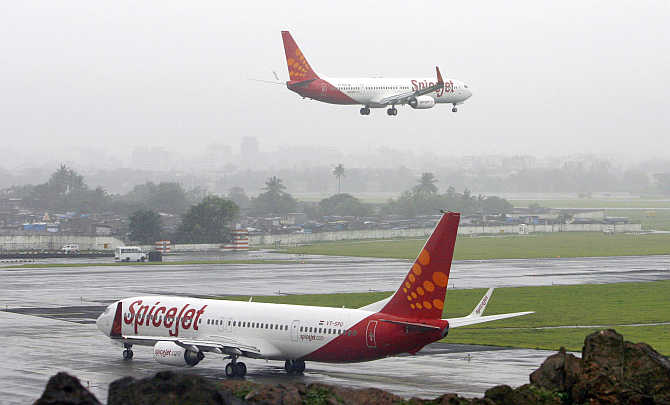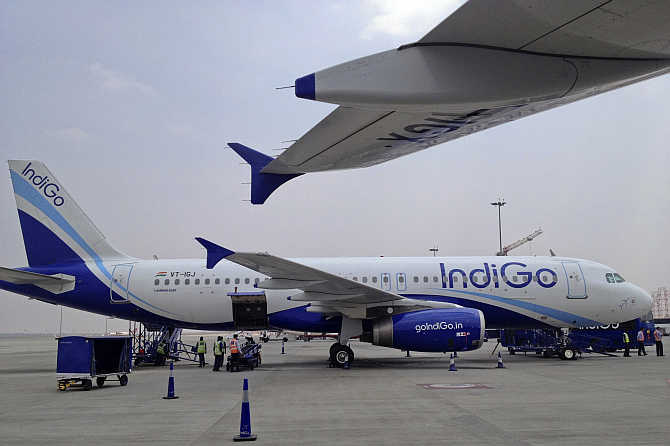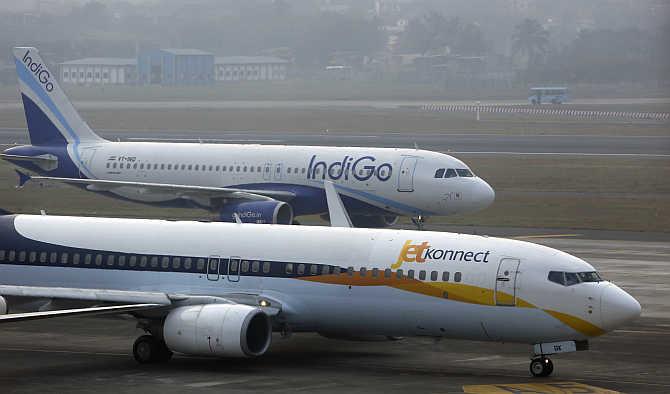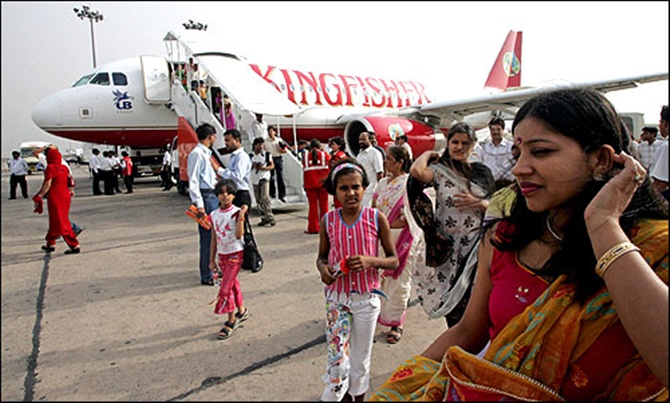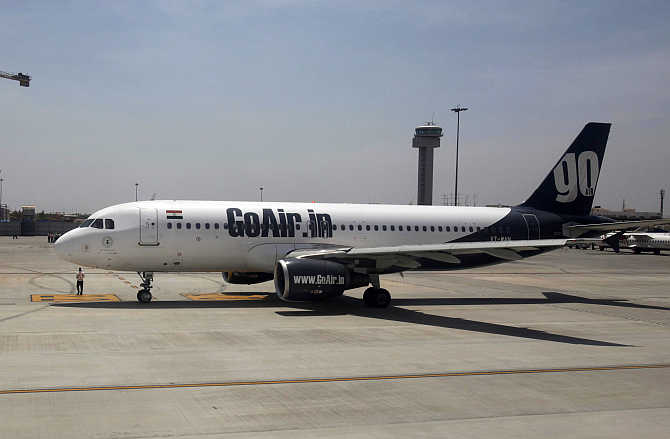 | « Back to article | Print this article |
Why India must clear the sky for airlines flying abroad
India must do away a pointless policy that mandates that a domestic airline must have been in operation for five years and have 20 aircraft before flying.
For well over a year, talk about scrapping the notorious 5/20 rule for domestic carriers keen on flying abroad has been doing the rounds in Rajiv Gandhi Bhavan and on Raisina Hill.
But the civil aviation ministry appears to be on cruise control when it comes to actually taking a decision, and bringing a note to Cabinet to that effect.
Yet the need to do away with a uniquely pointless policy that mandates that a domestic airline must have been in operation for five years and have 20 aircraft before flying abroad is growing more urgent by the day - especially since a number of foreign start-ups, such as Air Arabia, Tiger Airways and AirAsia, have been allowed to fly into India.
Click NEXT to read more...
Why India must clear the sky for airlines flying abroad
Since these airlines are outside the purview of these restrictions, they enjoy an unfair advantage over domestic airlines that are hobbled by them.
So far, however, despite the monthly assurances from the civil aviation minister, the issue has reached the stage where the ministry and the Directorate General of Civil Aviation said they will “hold consultations” on an issue that is clearly a no-brainer.
The groundswell for change has been growing within the policy-making set-up too. Over the past year and a half, the ministries of finance and corporate affairs as well as the Planning Commission have repeatedly stated that there is no logic to the policy.
Click NEXT to read more...
Why India must clear the sky for airlines flying abroad
In January last year, a study commissioned by the ministry of corporate affairs unequivocally said the barriers to international operations were anti-competitive because they limited the number or range of suppliers and reduced their ability and incentive to compete.
As the report pointed out, fleet size requirements incur a large start-up cost for domestic airlines and the policy also left domestic operators worse off at a time when foreign operators’ services to and from India were steadily expanding.
Most importantly, the report said, the policy “biases the market towards big airlines which already have economies of scale. Furthermore, this rule incentivises mergers”.
Click NEXT to read more...
Why India must clear the sky for airlines flying abroad
The report suggests that a better criterion to set would be financial viability - a sensible idea, as passengers stranded overseas when Kingfisher abruptly closed operations will testify.
Global safety norms should be the other benchmark, and it is worth remembering that it is state-owned Air India, with extensive overseas operations, that has been lax in this regard, not domestic private airlines.
It is possible that the ministry is moving cautiously on grounds that a change in policy is being effected just as AirAsia and Singapore Airlines are scheduled to make their domestic debut via tie-ups with the Tata group.
Click NEXT to read more...
Why India must clear the sky for airlines flying abroad
So it runs the real risk, especially in the current political climate, of being accused of favouring these entrants.
Indeed, barring Wadia-owned GoAir, all the major domestic airlines now meet the criteria for international operations.
But the existence of this stipulation on the rule books does little for India’s already tattered global reputation for doing business.
